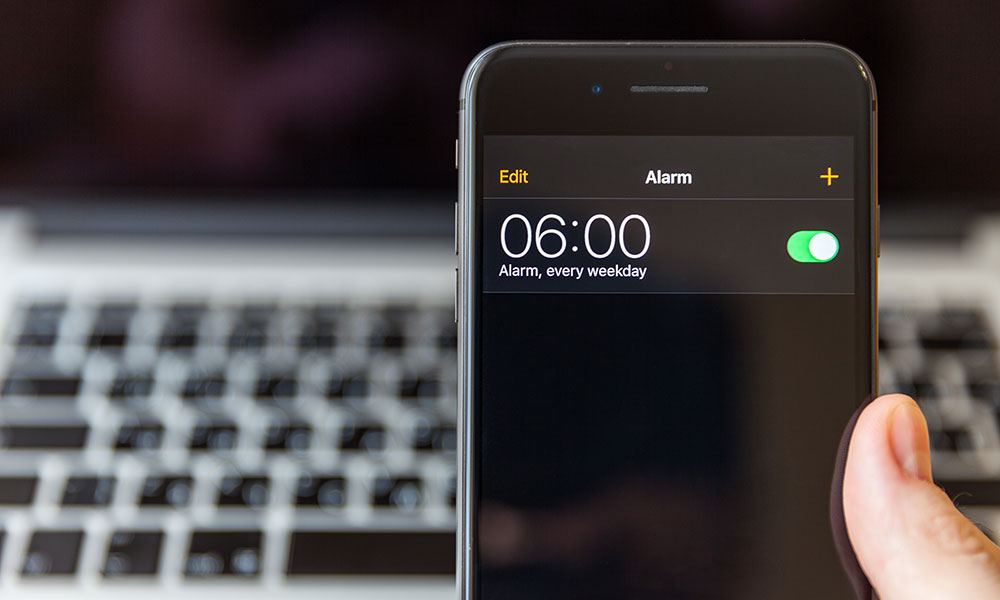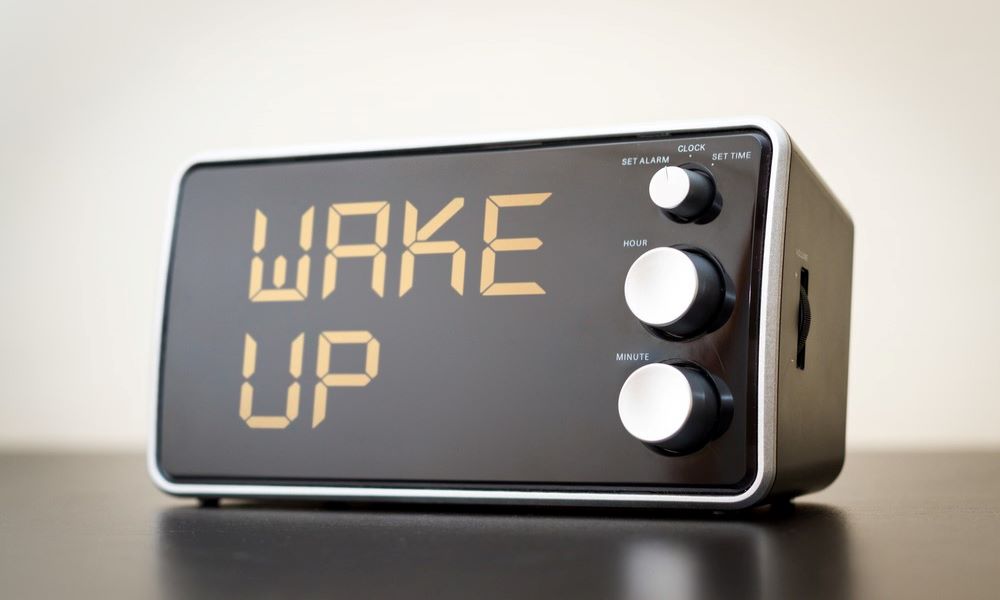Daylight Savings Disaster | DST Bug Causes Time to Change a Week Early for Canadian iPhone Users
 Credit: Aleksey H / Shutterstock
Credit: Aleksey H / Shutterstock
Toggle Dark Mode
Let’s face it, these days, we rely on our iPhones and other smartphones for pretty much everything from making phone calls to staying connected on social media and even controlling our lights and thermostats.
However, as magical as these devices are, they’re also heavily dependent on information coming from the internet and our carriers, which creates much more room for problems, as several iPhone users in Canada discovered this morning.
It would appear that numerous folks woke up this morning to discover that their cellular-connected Apple devices were incorrectly showing an hour behind the actual time.
It seemed as though the devices had already “fallen back” to the end of daylight savings time, which isn’t scheduled to occur in North America for another six days — and always occurs on a Saturday night, not a Sunday.
Several users reported the phenomenon on Reddit, Twitter, and elsewhere, and in fact, I also personally experienced this problem on Bell Mobility in Toronto.
Even though Apple has had a few DST-related bugs in the past, the blame for this one doesn’t appear to be with iOS or watchOS, but rather at least some Canadian cellular carriers. Nevertheless, it’s a good cautionary tale for why you may want to use a more traditional alarm clock as a backup — especially this time of year.
The Problem
It’s unclear which carriers were affected or how many users were impacted. However, the various reports seem to indicate that this problem was most widespread on Bell — one of Canada’s largest carriers — which acknowledged the situation around 7:42 a.m., noting that it was investigating the situation.
In my case, the problem resolved itself automatically around 7:50 a.m. Bell officially declared it fixed about an hour later.
Additional reports suggested that some users on other carriers were also experiencing the problem, although I know several people on Freedom Mobile — a much smaller carrier — who were unaffected. AppleInsider initially saw reports of it affecting users on Rogers, but those seem to be more sporadic.
As a carrier issue, this wasn’t limited to just Apple devices either, with many Android users reporting that it also affected them. The issue, of course, is that almost all cellular-connected devices get their time from the cellular provider. Your carrier sends out the standard UTC time, based on Greenwich Mean Time (GMT) in England, along with the appropriate offset calculation for whatever timezone you’re located in.
So, at 6:00 a.m. Eastern Daylight Time (EDT), your carrier is actually reporting 10:00 a.m. (GMT) and a “-4” to indicate the time zone that you’re in. It appears that this morning, Bell had effectively changed that to a “-5”, signifying the end of Daylight Savings Time six days early.
Likewise, It was notable that while this problem was going on, a number of folks found their time zone switched to Atikokan, a small town in northwestern Ontario that actually sits in Central Time (CT). This was most likely a result of the phone assuming the location based on the time zone offset since the operating system knows that Daylight Savings Time hasn’t actually ended yet.
Notably, the U.K. does switch from British Summer Time to Greenwich Mean Time on October 31, so it’s possible that also had something to do with it. Either way, the net result was that many folks found themselves running behind schedule.
Running Late
Thankfully, the clock on my iPhone didn’t go back until after my 5:30 a.m. alarm went off. However, it seems it affected my daughter’s cellular iPad earlier this morning, as she said she awoke around 4:00 to get a drink, and when she went back to her room, her iPad showed 3:00. In her sleepy state, she just assumed that was the clock change. So when I woke her up for school at 5:55, and she told me it was 4:55, I checked my iPhone, saw that was correct, and wondered if I had dreamt that my alarm went off.
Although the issue meant that my daughter had missed the shower she planned to take this morning — her alarm was set for 5:00 a.m. — fortunately, we still managed to get everywhere we needed to be on time. Others weren’t so fortunate.
Some people found themselves running late for work, and not all employers were particularly understanding in this case. Some managers simply didn’t know this problem existed and were unwilling to take the employee’s word for it. Others, however, simply didn’t care, taking a hard-line approach that there are no excuses and that it’s up to the employee to make sure they’re at work on time, no matter what.
How to Avoid This Problem
On the surface, the easiest way to avoid issues like this one is by simply getting a good, old-fashioned alarm clock that doesn’t try to set its time automatically. Even the most inexpensive alarm clocks have battery backups. But you can also go with a completely retro alarm clock and not have to worry about batteries at all.
That said, if you still want to be able to rely on your iPhone to provide your wake-up alarm, you’ll be happy to know there’s an easy way to make sure that your cellular provider, or even other timeservers on the internet at large, don’t send you back into the past:
- On your iPhone, open the Settings app.
- Tap General.
- Tap Date and Time.
- Tap the switch beside Set Automatically to turn it off.
Once you turn off the automatic time setting, you should see the current time zone and date and time as last updated from your cellular carrier. These should be correct, but if not, you can adjust them manually.
Note that your iPhone should still update automatically during daylight savings time changes, as iOS has this information built-in. However, the time zone will not automatically update when you travel, so if you’re flying across time zones, you will need to return to this screen to adjust it manually when you land.
Ultimately, this setting will help ensure that you don’t have any nasty surprises if your carrier’s timeservers break and they decide to send out incorrect information, as Bell Mobility did this morning to its customers in Canada. But, of course, it’s still never a bad idea to use a backup alarm if you have an important appointment that you can’t afford to miss, as technology still isn’t perfect, and there are other things that can go wrong.







